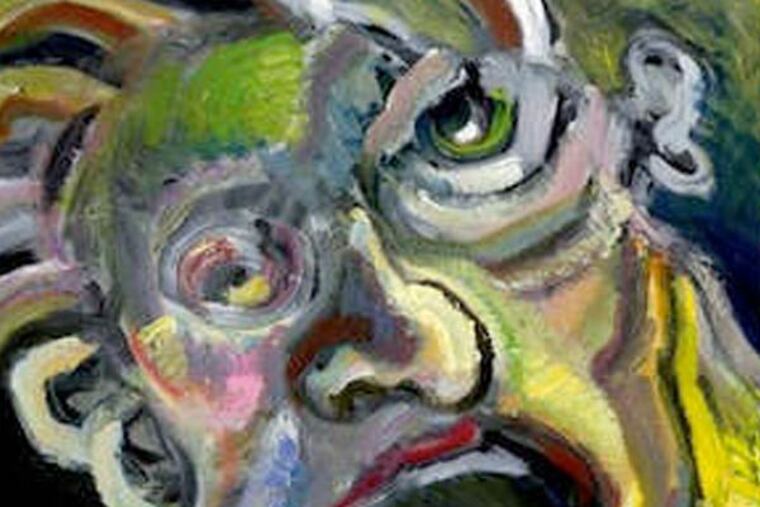Aphoristic poems for a flash-fiction, Facebook age
C.K. Williams stands out as one of the most active - and lauded - poets in contemporary American letters. Born in 1936 in Newark, N.J., he has published 20 or so collections of poems, a critical study of Walt Whitman, two books of essays, a memoir, some translations, and a number of children's stories.

All at Once
By C.K. Williams
Farrar, Straus and Giroux. 186 pages. $25.
nolead ends nolead begins
Reviewed by Andrew Ervin
C.K. Williams stands out as one of the most active - and lauded - poets in contemporary American letters. Born in 1936 in Newark, N.J., he has published 20 or so collections of poems, a critical study of Walt Whitman, two books of essays, a memoir, some translations, and a number of children's stories. Along the way he has won nearly every poetry prize out there, including the National Book Award, the Pulitzer, the National Book Critics Circle Award, and the Ruth Lilly poetry prize. His latest collection, All at Once, defies easy categorization.
All at Once is most likely to reward readers who don't get hung up on superficial definitions of what constitutes a poem. The book is divided into three sections of what appear on the surface to be autobiographical prose poems. Because there are no line breaks, many of these resemble some of Baudelaire's prose works or, every so often, Nietzschean aphorisms. What Williams has written here definitely are poems, but they're also simultaneously mini-memoirs or even flash fiction. It ultimately doesn't matter how we define them.
Generally speaking, the first section of this triptych deals with meditations on the poet's life and his physical and domestic worlds, the second with his marriage to a woman named Catherine, and the third tends toward witty observations about the everyday world we all inhabit.
Sex and death get a great deal of attention throughout. In the case of the former, maybe it gets too much attention. More on that in a moment. The strongest parts of the book are those that look mortality in the eye, as in "Shock":
"And I thought, This is how it is when someone dies, someone you love, how you stand still in your mind, your heart, you can't move, nothing can move, and then, as time rushes over you like the wild wind of the veldt, you come to yourself, though something within you is still fleeing, still rushing forever away, you just don't know what it is, in time's tempestuous wind it's gone, like the light in the eyes of a fawn, the light of life that doesn't easily go out but does."
From "Wind":
"There's something disconsolate about them - the desiccated leaves of autumn always appear to have found the place to which they've been destined, but these don't seem to grasp what's happened to them: they lie on the ground at awkward angles, like things wounded that haven't completely given in to death and don't know yet they must."
The similes often pop from the page. In "Silence," a heron paces "like an old-time librarian" and a few lines later sits awkwardly in a tree "like a still Adam's-appled adolescent." The regression from old age to youth is fascinating.
Some poems - "Old" and "Child's Mind" and "Temptation" - may very well stand among the most rewarding of Williams' tremendous career. My personal favorite is probably "Cattle," about the "need to rest from the exertion of existing."
If the occasional poem here comes across as a bit self-indulgent, so be it. Williams has earned that right. Many contain simple, sometimes mundane, observations about the little embarrassments and victories of daily life. To that extent, reading All at Once is a bit like reading the Facebook page of someone extremely insightful and clever, and occasionally someone lacking in discretion about his personal life. I'm not apt to continue reading any poem that begins, "Maybe it's just my age, but sometimes these days when I'm making love to Catherine it feels as though . . . ."
Every poem here is artfully formed, of course, even if many mimic the spontaneity of social-media status updates. "Flexible Tubing" begins:
"To take my mind off the fact that I'm waiting for my doctor to call to let me know if I have lung cancer or not - Christ! - when the plumber comes today to run new water lines into the apartment we've rented and I've been renovating, I spend the day working with him, nine till five, ten minutes for lunch, exhausting, absorbing; I need the distraction."
The only thing missing here is an Instagram pic of their sandwiches.
And here's a particularly short one called "Apollo or Dionysus" verbatim and in its entirety: "Which? Quick! Which? Too late . . . Too late again." I can't help thinking that would have made a tremendous tweet.
We live in an age when every thought - however tedious or inconsequential or personal - finds public expression online. And it's little wonder that our greatest artists would incorporate this newfound sensibility into their writing. A decade ago, perhaps Williams' observations in All at Once might have taken a different shape, but he's such a keen observer of our world - of our rhythms and our rhetorics. Given all of the chameleonic things he has achieved, perhaps it should come as no surprise to see Williams reinvent himself yet again as our elder statesman of TMI-overload and still continue to demonstrate why he's considered a national treasure.